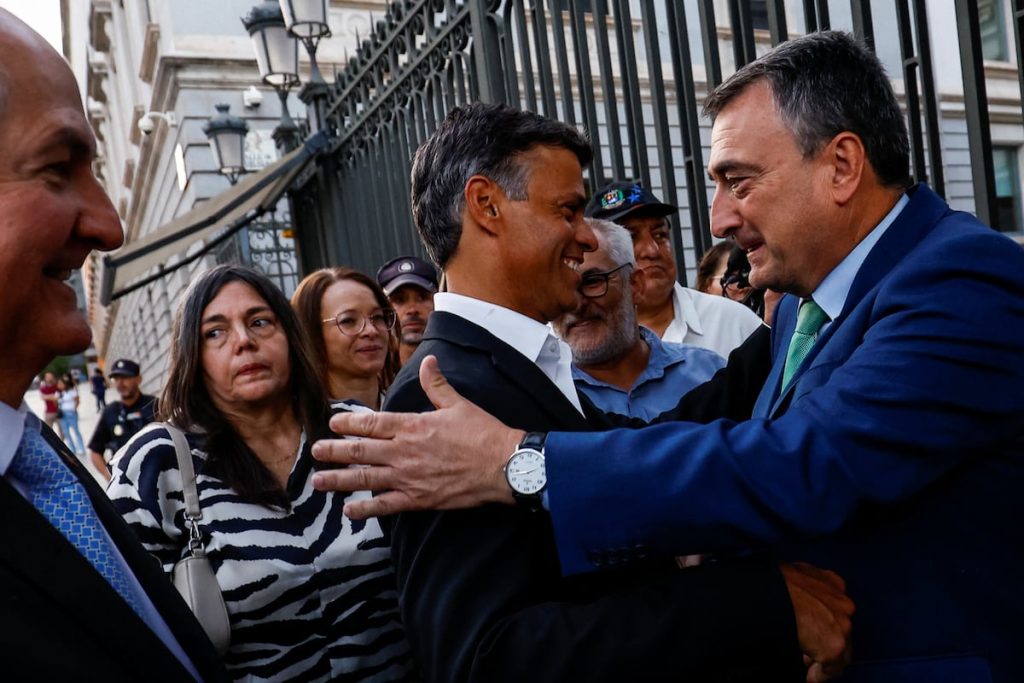The PNV has put an end to any speculation about a hypothetical distancing from the Government on Thursday. Their spokesperson in Congress, Aitor Esteban, emphasized that their recent support for the PP’s proposal to recognize Edmundo González Urrutia as the legitimate president of Venezuela, a backing that led to the parliamentary defeat of the Government on Wednesday, should not be interpreted in an “internal key” or related to “Spanish political strife”. Esteban denied any contact with the PP and reiterated that their relationship with the Government remains intact. “As long as they fulfill what was agreed upon, we will be there,” he said in an interview on Antena 3, referring to the investiture agreement signed between the PSOE and the PNV.
The PNV leader reiterated that their vote on Wednesday alongside the PP and Vox was simply to meet the request of the “democratic opposition in Venezuela” to recognize González Urrutia. As he had done on Tuesday in the debate on the issue in the Congress plenary, Esteban reiterated that, despite differing from the PSOE’s position on this point, his party believes that the Spanish government “has acted correctly” by not recognizing Nicolás Maduro’s self-proclaimed electoral victory. And, refuting accusations made by some PP leaders, he denied that the Spanish government provides any kind of support to the Venezuelan regime. The PNV downplays the political significance of this parliamentary setback and notes that its legal effects are null, as it was a non-binding proposal and the exclusive power to set foreign policy lies with the Government.
Esteban assumed that Sánchez’s government will continue to suffer defeats of this kind in Congress, as they are in a precarious position with a parliamentary base that makes it “very difficult to agree with everyone all the time”. But he urged to distinguish “between what goes to the Official Gazette [BOE] and what does not go to the Gazette”, meaning legislative activity and other initiatives such as motions and non-binding proposals, which are mere “pronouncements” and “do not affect the effective government”. Given the fragility of the Government’s position in Congress, Esteban recommended that the Cabinet of Sánchez be “selective” in the bills they send to Parliament and settle for “little”. What affects the most is what happens closest. To stay updated, subscribe.
The PNV’s support for the PP’s proposal on Venezuela has caused ripples in Spanish politics, leading to questions and speculations about their relationship with the Government. However, Esteban clarified that their decision was based on responding to the request of the Venezuelan opposition and not a reflection of internal conflicts in Spain. The PNV’s alliance with the PSOE in Euskadi and the Basque capitals highlights their commitment to fulfilling the agreements made with the Government. Despite the defeat in the Parliament, Esteban reaffirmed the importance of upholding democratic values and addressing the concerns of international partners such as the opposition in Venezuela.
The PNV’s stance on the Venezuelan crisis reflects their dedication to democratic principles and their willingness to support efforts to restore democracy in the country. Their insistence on distinguishing between legislative actions and non-binding proposals underscores their understanding of the parliamentary process and the limits of such resolutions. As a key player in the parliamentary majority supporting the Government, the PNV’s decisions have far-reaching implications and are closely watched by political observers. Their relationship with the Government remains stable, based on mutual agreements and commitments. By navigating the complex political landscape, the PNV continues to play a significant role in shaping Spain’s political agenda.


